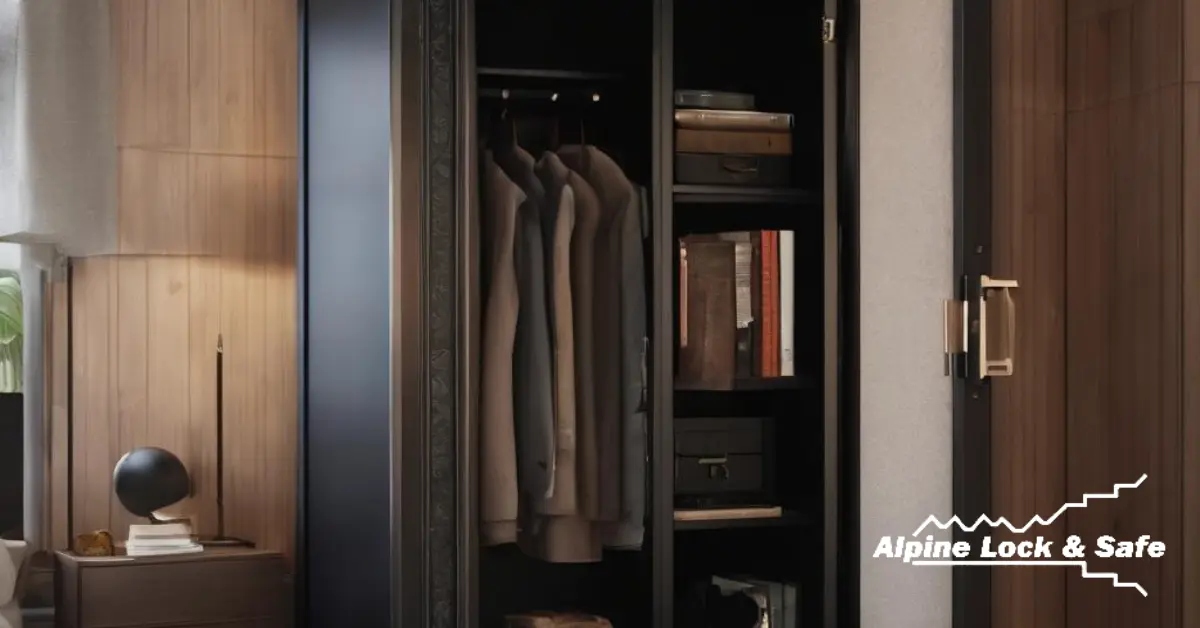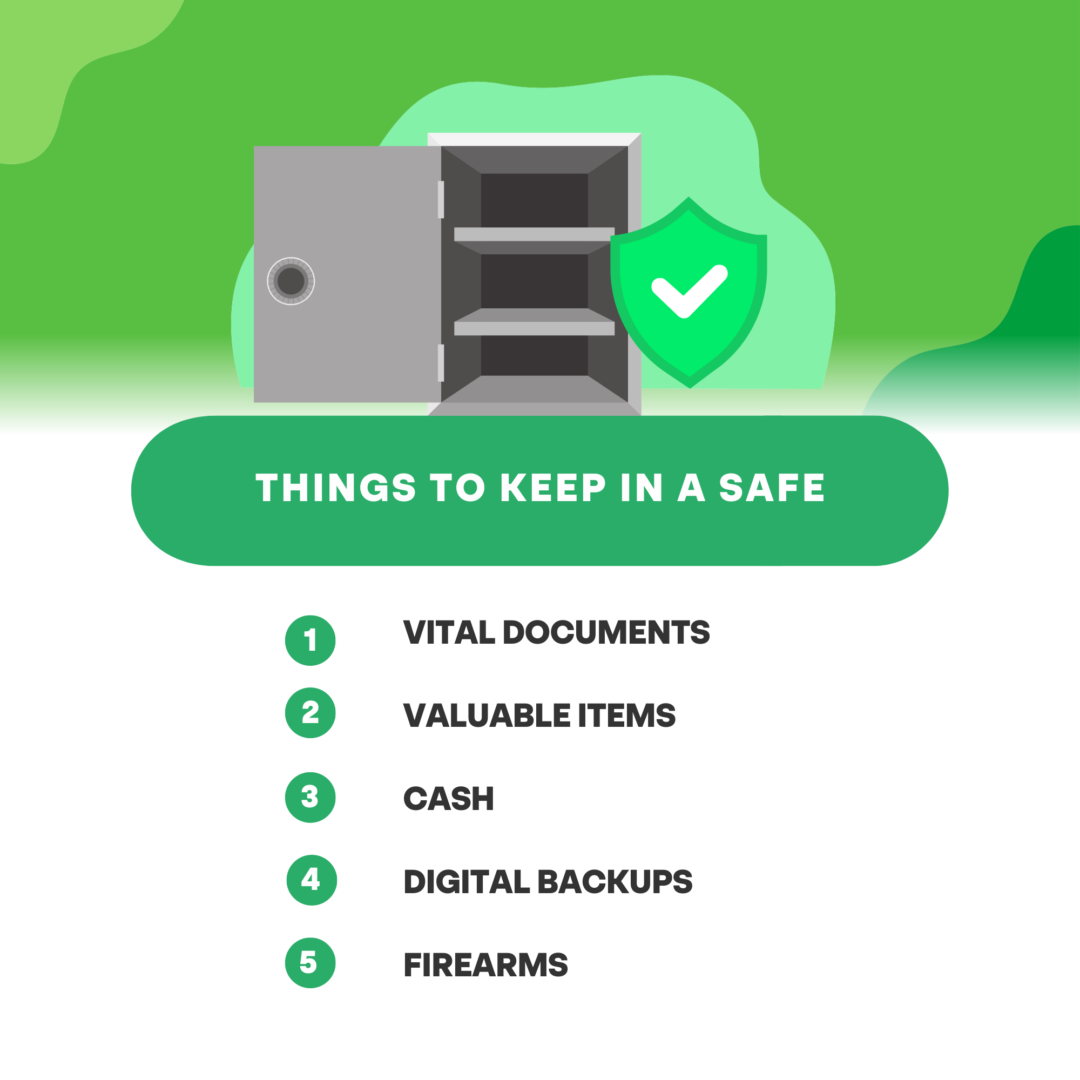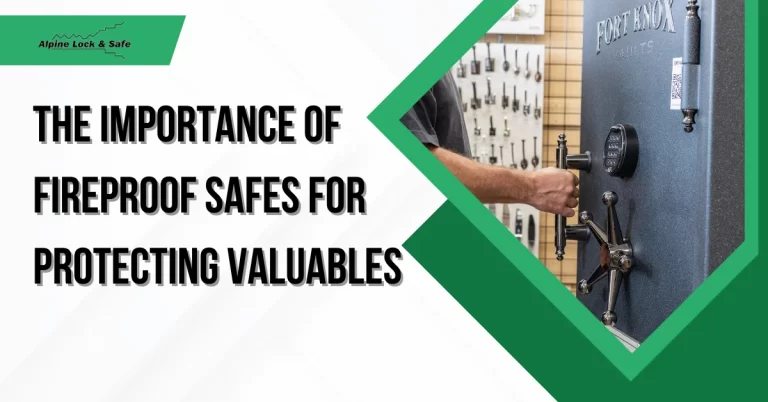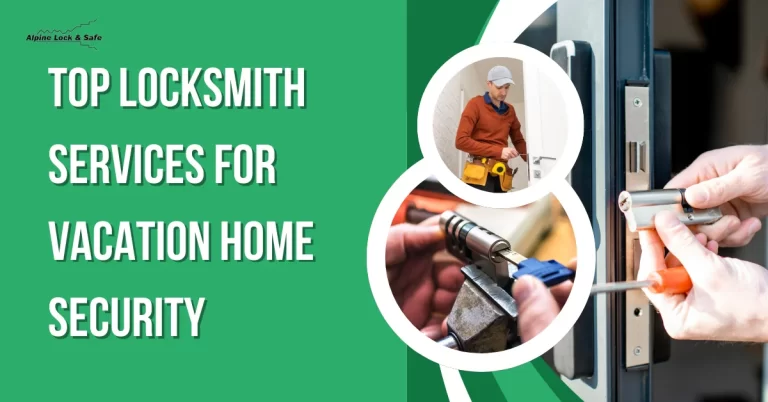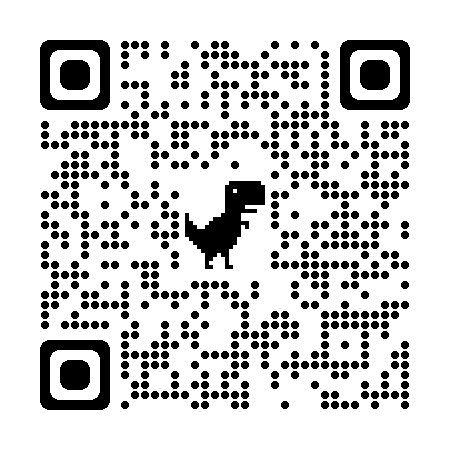When it comes to safeguarding your valuables and important documents, a safe is an excellent investment. It provides protection against theft, fire, and water damage, giving you peace of mind. However, not everything should find its way into a safe. To make the most out of this security measure, it’s crucial to determine the right items to keep in it.
In this article, we will explore the things to put in a safe to enhance its security. We will also discuss what not to store in a safe, as some items are better off in alternative storage options. So, let’s get started and learn how to optimize the use of your safe!
Things to Keep in a Safe
Things to keep in a safe are vital documents, valuable items, cash, digital backups, and firearms. These items are prone to loss or damage due to theft, fire, or natural disasters, so keeping them secured in a safe is a wise choice.
Now, let’s dive deeper into each of these things:
1. Vital Documents
Vital documents include birth certificates, passports, social security cards, property deeds, and insurance policies. These papers are challenging to replace, and losing them can lead to various complications. If you put them in a safe, you protect them from thieves, from damage, and the hassle of getting new copies.
It’s also worth considering a fireproof safe for your vital documents, as it provides an extra layer of protection in case of a fire.
2. Valuable Items
Valuable items encompass jewelry, heirlooms, rare collectibles, and precious metals. Given their monetary and sentimental value, it’s essential to secure them in a safe. When you do this, the risk of theft is reduced since most safes are designed to be tamper-resistant.
When choosing a safe for valuable items, go for one that is well-built and offers sufficient security features. This ensures maximum protection for your prized possessions.
3. Cash
Cash is another thing to keep in a safe, especially significant amounts that exceed what you need for day-to-day expenses. While banks can safeguard your money, having a portion of it in your safe provides quick access during emergencies and avoids potential risks, such as bank closures or limited fund accessibility.
It’s important to note that if you decide to store cash in a safe, choose one that is fastened or bolted to the floor or the wall. This type of safe is less vulnerable to theft, as it is challenging for criminals to remove.
4. Digital Backups
In this digital age, making digital backups of important files, such as photographs, videos, and financial records, is a common practice. However, relying solely on electronic storage can be risky, as hard drives can fail, and data can be lost. To mitigate this, it’s advisable to keep your digital backups in a safe.
A safe protects these backups from not only theft but also potential damage that can arise from fire or water incidents. Consider getting a waterproof safe if you plan to store electronic devices, like external hard drives, in your safe.
5. Firearms
Firearms should be kept in a safe, primarily to minimize the possibility of unauthorized access and to protect everyone in the home. The safe should be specifically designed for gun storage, with features that meet the standards set by relevant authorities.
Remember, responsible gun ownership goes beyond having a safe; it also entails knowing how to properly handle and secure your firearms.
What Not to Put in a Safe
While safes are a great way to secure many items, what not to put in a safe are things that require alternative storage options, including:
1. Items You May Need in an Emergency
It’s not advisable to put in a safe items you may need in an emergency, such as original copies of health care directives and power of attorney documents. During critical situations, quick access to these papers is crucial, so it’s better to keep them in a readily accessible location.
2. Perishable Items
Perishable items like food and drink must not be put in a safe. Apart from the fact that they hold no value in a safe, storing them in an enclosed space can lead to spoilage and, in turn, unpleasant odors and potential damage to the safe.
3. Uninsured Valuables
If you have uninsured valuables, it’s not recommended to put them in a safe. While a safe provides security, it cannot protect against all risks. Insuring such items and storing them in a locked cabinet or another secured location is a more suitable course of action.
What Not to Put in a Safe Deposit Box
Safe deposit boxes are different from traditional safes, and as such, they have their own set of items that are not suitable for storage. These include cash, firearms, and any items that are illegal or hazardous.
While a safe deposit box can provide an added layer of security for certain valuables, it may not be the best option for items you may need in an emergency. This is because accessing a safe deposit box can be time-consuming, requiring you to go to the bank during their operating hours.
Things to Keep Out From Fireproof Safes
Things to keep out from fireproof safes are items that are heat-sensitive, such as delicate electronic devices, USB flash drives, and volatile materials like gasoline and fireworks. Fireproof safes are specifically designed to endure high temperatures and protect the contents inside from damage caused by fire. However, note that they can still generate heat inside, which can damage these items.
Takeaway
Things to put in a safe are vital documents, valuable items, cash, digital backups, and firearms. Safes provide protection against theft, fire, and water damage, making them a secure choice for these items.
When using a safe, remember to avoid storing items you may need in an emergency and those better suited for alternative storage options. Safe deposit boxes are ideal for some valuables, but not for cash and emergency-related documents.
Lastly, perishable items, uninsured valuables, and heat-sensitive things should stay away from fireproof safes.
Safeguard Your Most Valuable Items With Alpine Lock & Safe
If you’re looking for Keystone fireproof safes, Alpine Lock & Safe has got you covered. Our safes are built to withstand the toughest conditions, providing unparalleled protection for your belongings. Contact us today!


